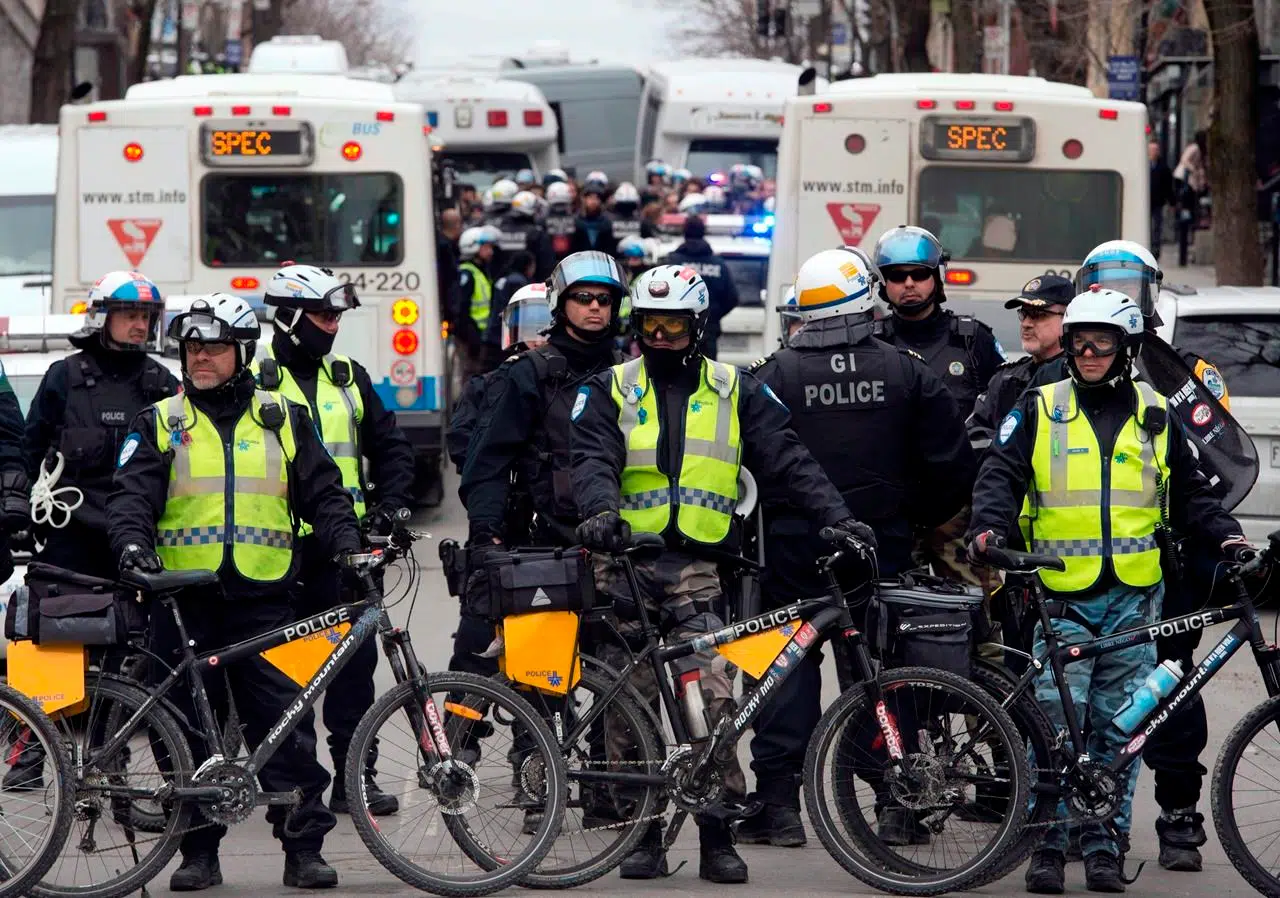
Revelation that Montreal cops infiltrated protests latest sign of transparency
MONTREAL — During a recent meeting of Montreal’s police oversight body, Insp. Pascal Richard made a shocking claim: city police officers dressed in civilian clothing and wearing masks would infiltrate protests pretending to be protesters.
Richard was responding to a question from a young woman regarding a Dec. 8, 2015, protest where masked officers in civilian dress were reportedly aggressive with demonstrators and pushed some to the ground.
“I know what incident the woman is talking about, and since Dec. 8, 2015, we no longer use this strategy during protests,” Richard told the public security committee meeting.
Richard didn’t say how many years this practice was used, but the fact he said anything about it at all reflects a change in attitude following a series of high-profile scandals that have shaken the public’s confidence in its police force.


